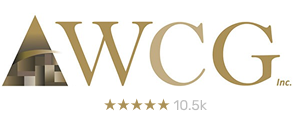
Business Advisory Services
Everything you need to help you launch your new business entity from business entity selection to multiple-entity business structures.
Hey - Our site just had a makeover and we are sorting through the hiccups!
Hey - Our site just had a makeover and we are sorting through the hiccups!

Everything you need to help you launch your new business entity from business entity selection to multiple-entity business structures.

Designed for rental property owners where WCG CPAs & Advisors supports you as your real estate CPA.
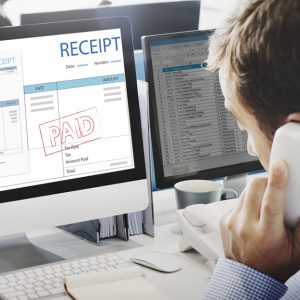
Everything you need from tax return preparation for your small business to your rental to your corporation is here.

Posted Thursday, June 13, 2024
Table Of Contents
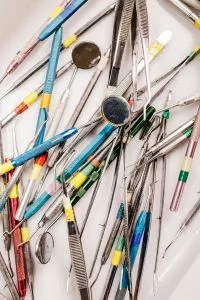 Navigating the complexities of tax deductions can be daunting for any professional, but for dentists, the challenge is uniquely intricate. With the myriad expenses tied to running a successful dental practice—from equipment and supplies to continuing education and office overhead—understanding which costs are deductible can significantly impact your bottom line. But, never fear!
Navigating the complexities of tax deductions can be daunting for any professional, but for dentists, the challenge is uniquely intricate. With the myriad expenses tied to running a successful dental practice—from equipment and supplies to continuing education and office overhead—understanding which costs are deductible can significantly impact your bottom line. But, never fear!
We’ve created this resource page to help you delve into the essential tax deductions available to dentists. It’s our mission to help you maximize your tax savings and ensure your practice remains financially healthy! Whether you’re a seasoned dentist or just starting your own practice, these insights will provide valuable guidance to optimize your tax strategy. If you get stuck, just call! We’re always down for a chat.
Our dentist tax deduction resource page is a condensed version of our small business tax deductions webpage, but we’ve enhanced it to help dentists keep more money in their pockets.
What is more valuable? A tax deduction or a tax credit? They both sound pretty cool, right?
Both typically require a dental practice to spend money, but that’s where the similarity ends.
If you spend a $10,000 on some equipment, it might put $3,500 in your pocket assuming a 35% marginal tax rate. In other words, you spent $10,000, and it cost you $6,500. But what if that $10,000 equipment created a tax credit equal to the $800 under the research and development tax credit? You would still save the $3,500 in taxes as a tax deduction, but you would also add a “kicker” of $800 as a tax credit.
Generally speaking, tax credits are more valuable than tax deductions to your dental practice. Let’s get into it!
Every December, WCG fields hundreds of phone calls and emails from dentists and other small business owners asking if they should buy something to save on taxes. Our response is a simple flowchart:
Without sounding snarky, why would you buy something on December 31 if your tax rate will only increase the following year? Then wait 24 hours, ring in the New Year, and buy the cool thing you need to get a better, yet delayed tax deduction. If you don’t need it, why would you spend money unnecessarily only to get a portion of that back in tax savings?
Another way of saying this is: keep some small business tax deductions in your pocket for next year. You don’t want to be in a position where you run out of perfectly good tax deductions in a year of increased taxable income.
Conversely, if your current taxable income is unusually high, and you expect it to go down next year, then perhaps you should accelerate your timelines for major purchases. WCG can help with the tax modeling and planning.
All too often we hear people at cocktail parties say something silly like “Don’t worry, it’s a write-off.” Remember that money is still leaving your person, and the money you are getting back in the form of a tax deduction is substantially less. Just because it’s a “write-off” or a business tax deduction doesn’t mean you’re using Monopoly money. Houses are green, and hotels are red, but cash is real life.
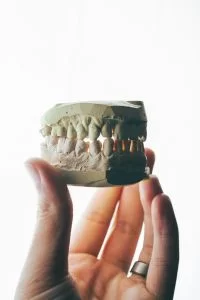 Ok, that’s misleading. There are probably way more than 185 deductions you can’t take, but the following short list details the common ones where we see a lot of confusion around. Having said that, we are not trying to limit your tax deductions, nor are we the government’s accountant. In other words, we are not the tax police, but our job is to remind you that the tax police exists.
Ok, that’s misleading. There are probably way more than 185 deductions you can’t take, but the following short list details the common ones where we see a lot of confusion around. Having said that, we are not trying to limit your tax deductions, nor are we the government’s accountant. In other words, we are not the tax police, but our job is to remind you that the tax police exists.
WCG is your advocate, and we can help position you and your business to maximize your small business deductions.
We expand on this list and others in our book titled Taxpayer’s Comprehensive Guide to LLCs and S Corps, and our small business deductions webpage. Check it out!
Small business tax deductions are critical for reducing taxable income. What happens if you are unreasonable? Good question! Think of your last argument with someone who was unreasonable. Was that pleasant? Did the argument end up being resolved amicably? Probably not on both counts.
The IRS and tax court are full of humans, and humans respond to unreasonableness predictably. They simply toss out whatever small business tax deduction you are arguing for, ask for all kinds of proof, and then look at whatever evidence you provide with extreme suspicion… a “Yeah… riiiiiggght” salvo.
Don’t get us wrong… just because your dentist tax deduction appears reasonable does not mean you don’t have to support it with proper record keeping. You must be able to prove the veracity of the business tax deduction if challenged. The button below is a link to a blog post outlining some reasonable and unreasonable positions on small business tax deductions:

Learn about avoiding small business tax deductions, ordinary, and necessary expenses.
Some dentist expenses above are mixed use such as home office, cell phone, internet and automobile expenses. These are called mixed-use expenses and are typically personally paid for by you the individual, and then later reimbursed by your dental pratice. Please check out the video which explains more.
You can also visit our Accountable Plan page which has fancy Excel spreadsheets and examples, and other nonsense.
Business owners must reimburse themselves through an Accountable Plan otherwise the reimbursement is considered taxable income.
Please understand that depreciation is a tax deferral system rather than a tax avoidance system. Huh? When you sell or dispose of an asset, you might have to pay tax on the portion that was depreciated.
For example, you buy a $200,000 piece of machinery and use Section 179 depreciation to deduct the entire $200,000 in the first year. Five years later, you sell the equipment for $150,000 because you slapped some new paint on it, and you are a shrewd negotiator with your buyer. Now you have to recognize $150,000 of taxable ordinary income. Yuck. But there is a silver lining: depreciation recapture is taxed at your marginal tax rate up to a maximum of 25% tax rate. So, you could have depreciated your asset during 39.6% marginal tax rate years just to pay it all back at 25%. Bonus.
Tax planning is a must! How many times have we mentioned that?
There are some over-arching themes and concepts for all small business tax deductions. The business expense must be:
Let’s break these down. An ordinary expense is one that is common and accepted in your field of business, trade, or profession… in your case, in the dental practice community. A necessary expense is one that is helpful and appropriate, although not necessarily required, for your practice. In Samp v. Commissioner (Tax Court Memo 1981-706), an insurance agent had a handgun since he traveled to an area with a recent unsolved murder. The tax court responded with
“A handgun simply does not qualify as an ordinary and necessary business expense for an insurance agent, even a bold and brave Wyatt Earp type with a fast draw who is willing to risk injury or death in the service of his clients.”
You have to appreciate a Wyatt Earp reference from a tax court judge. Ouch. Clean up on aisle Allstate.
The expense must be paid or recognized in the current year. Expenses that were paid but not deducted in previous years cannot be “caught up” by deducting them today without amending your prior tax returns (which are easy to do, and should be done if there is money to be had).
 In deciding whether to own the automobile personally or through your dental practice, here is a simplified decision tree. It is not a hard and fast set of rules, but will provide some guidance.
In deciding whether to own the automobile personally or through your dental practice, here is a simplified decision tree. It is not a hard and fast set of rules, but will provide some guidance.
These are not hard and fast rules. These are rules of thumbs and generalizations. We always caution people trying to split the atom to save some money. At the end of the day, most small business owners do what makes him or her feel most comfortable, and the few bucks that might be left on the table is overshadowed by the lack of anxiety and headache. In other words, is the juice worth the squeeze? Or, as Jason says: “I love French fries, but I am not running a mile for just one.”
Also… the Tax Cuts and Jobs Act of 2017 created 100% Bonus Depreciation, which means you can now deduct 100% of heavy vehicles using both Section 179 and Section 168. Luxury cars are still limited to $18,000, but the Hummer Loophole is back.
Should you buy an automobile in the business? Or own it personally? Who knows!? We can help you come to an informed decision about mileage reimbursements, depreciation, Section 179 and bonus depreciation. Jason Watson, CPA, of WCG Inc. (formerly the Watson CPA Group) takes you through the issues of buying an automobile and helps create a decision-tree.
Yes! You can have multiple work locations. The IRS states that if you use a home office as your primary location for substantial administrative activities, you are allowed to essentially have two work locations. For example: imagine you got bored with the dentist thing, and decide to own a landscaping company, where you have an office in your shop. You perform all your administrative activities such as hiring and firing employees, accounting, balancing your checkbook. You enjoy the comforts of your home office talking to your attorney, chatting it up with your Colorado Springs CPAs at WCG, — you get the deal! That office counts as a work location in addition to your office in your shop. Here is the play by play blurb from the IRS:
You can have more than one business location, including your home, for a single trade or business. To qualify to deduct the expenses for the business use of your home under the principal place of business test, your home must be your principal place of business for that trade or business. To determine whether your home is your principal place of business, you must consider:
Your home office will qualify as your principal place of business if you meet the following requirements.
So, does this work for a dentist and a dental practice? Absolutely. If you can demonstrate that you perform substantially all of your administrative activities at home and not at the office, you might qualify. A lot of business owners like to work on these activities at home since it’s quieter, more private, and allows for long-term concentration.
As mentioned before, don’t forget that commuting miles between your residence and your office are not deductible, but if you have a home office suddenly these miles become business miles and therefore tax-deductible. Boom! The use of “Boom” is apparently out of fashion. Whatever.
Please visit our Home Office Mini Portal. You can also read the full IRS Publication 587 (Business Use of your Home) for more information.
The Sutter rule allows the IRS to disallow a portion of your business meals when they consume a large part of your normal living expenses. In other words, if every meal you eat is a justifiable business meal, it might not matter under the Sutter rule. This rule was created in Richard Sutter v. Commissioner, 21 Tax Court 170 (1953),where Sutter expensed his lunch every day but the court found that “the deduction for the cost of lunches was apparently almost entirely payment for petitioner’s own meals when he attended such functions as meetings of the Chamber of Commerce. There is no evidence that these costs were any greater than expenditures which petitioner would have been required to make in any event for his own personal purposes. They must consequently be disallowed.”
Sutter was audacious — he deducted everything he could think of. It is a great read.
Again be careful. Business meals are low-hanging fruit for the IRS. We’ve seen thousands of dollars in tax deductions disappear before our eyes during an examination because the client could not demonstrate the business purpose. To avoid losing an audit, make sure you keep receipts beyond relying on the credit card statement. In addition, keep a log or journal of the person(s) you met with and the topics of discussion. Be very specific. Memories fade, so if you intend to reconstruct this evidence upon receipt of your examination notice from the IRS, think twice. IRS agents are no dummies on meals and the associated tax deductions.
Let’s briefly discuss record keeping, and then jump into a famous New York entertainer named Cohan who ultimately provided a nifty rule that can be used during an IRS audit. To be able to demonstrate business tax deductions you need to show the date, the amount and the person or business you paid. A bank or credit card statement, or canceled check, satisfies this. The second element is the business purpose must be documented either through a logbook, planner or accounting software. Proof of payments plus business purposes equals tax deductions.
Do you need receipts? Yes and no. For travel, gifts and meal, if the amount is under $75 then you only need to document the event and business purpose in a logbook or planner. However, if you spend $10 at Costco for some paper, then you need proof of payment plus business purpose documentation. Seems a bit onerous and even contradictory, but it is true.
Enter Cohan vs. Commissioner, 39 F. 2d 540 (2d Cir. 1930). Yes, 1930 and we still use it today. George Cohan gave us “Yankee Doodle Dandy” and “Give My Regards to Broadway”, and he gave us a small business tax deduction rule. His rule is simple- you can approximate your business expenses and ultimately your business tax deductions. What?! No, it is not that simple.
You must have corroborating evidence that demonstrates your expense. For example, as an online accountant, WCG can demonstrate that we prepare so many tax returns which are so many pages in length, and therefore we can approximate our paper costs.Temp. Regs. Sec. 1.274-5T(c)(3) also gives latitude to the IRS to allow substantiation of a business expense by other means.
WCG has successfully used the Cohan rule in IRS examinations. We have also implemented it during tax preparation when records are incomplete or missing (i.e., one hot mess). Having said that, using estimates and approximations looks bad. Keep good records, please. Do not rely on the Cohan rule or some treasury regulation to save your butt.
The Cohan rule or any type of estimation cannot be used for travel, business gifts and meals. All the good stuff need strict record keeping habits. Section 274(d) of the U.S. Tax Code also states that listed property must be substantiated with proper documentation. Listed property includes vehicles, equipment generally used in entertainment such as cameras and stereo equipment, and computers. Seems a bit out dated, but there you go. So, if you are a photographer who drives a car for business while entertaining guests, you will be a master at record keeping.
This web page is huge, and has a ton of information in it and perhaps it is overwhelming. To reiterate information from the beginning of this hoopla there are some over-arching themes and concepts for all dental practice tax deductions. The business expense must be-
We want to give you this table to help summarize the business deductions that are clearly not allowed (black), the ones that clearly are allowed (white), and the gaggle of exceptions (grey). We swim in grey waters with slivers of black and white.
| Business Expense | Deduction? |
| 401k Plan | Get $500 tax credit from IRS for starting one. Great way to defer taxes. We can set this up. The SECURE Act of 2020 boosted the tax benefits as well. |
| Advertising | Yes. |
| Automobiles | Business use only. Use decision tree to see if you should own it or the business. Depends on price, turnover, miles driven, business use and marginal tax rates. Personal use added to W2 Box 1, 3 and 5 using Lease Value rates in IRS Pub 15-B. |
| Business Travel | All kinds of rules. Mix pleasure with business under some circumstances. |
| Business Meals | 50% if business discussion with client, prospect or associate. 50% if traveling away from your tax home on business. 100% for company social gatherings or convenience of the employer (lunch). |
| Cell Phone | Business use only. Never 100% unless you have second phone. Reimbursed through Accountable Plan. |
| Client Gifts | Max $25 per recipient per year. |
| Commissions | Yes. |
| Commuting Expenses | No. If you have a home office, then commuting becomes business travel and subsequently Yes. |
| Copier Lease | If the lease can be considered a capital lease, then No. If the lease is an operational lease, then yes. Depends on the facts and circumstances. |
| Country Club Dues | No. Don’t throw the book. Not our fault. Meals at your country club, yes, if there is a business purpose |
| Defined Benefits Plan | Get $500 tax credit from IRS for starting one. Great way to defer taxes. We can set this up. |
| Education | Only if improves your current work skills or necessary for professional credentials. |
| Food | 50% if business discussion with client, prospect or associate. 50% if traveling away from your tax home on business. 100% for company social gatherings or convenience of the employer (lunch). |
| Golf Outing | No. Seriously. Let it go. |
| Guard Dogs | If you are a high risk defense attorney on the East Coast and need a security detail, then Maybe. Must be a bona fide occupational qualification. |
| Health Savings Accounts | Company contributions, yes. Added to your W2 Box 1. |
| Home Office | If regularly and exclusively used for business, then yes. Multiple locations OK provided home office is primarily used for substantial administrative activities. Reimbursed through Accountable Plan. |
| Insurance | Business liability insurance, yes. Auto insurance, yes if the company owns the car. Health insurance, yes and added to W2 Box 1. Dental insurance, yes and added to W2 Box 1. Eye insurance, yes and added to W2 Box 1. Long Term Care insurance, yes, but limited. Disability insurance, No. Otherwise, your benefits become taxable income. Life insurance, No. Only in C corporations where the corporation is the owner and beneficiary (no S corp election!). |
| Kids On Payroll | Great way of reducing tax liability for the same amount of cash. Must do it correctly and follow state child labor laws. |
| Legal, Professional Fees | Yes. |
| Merchant Card Fees | Yes. |
| Per Diem | Maybe. If employees own more than 10% of a corporation, then No. Sole proprietors and single member LLCs including partners in partnerships, yes. |
| Professional Attire | If the clothing is suitable for everyday use, then no. If the clothing is a uniform, then yes. Possible advertising expense. No dry cleaning unless clothing otherwise qualifies. |
| Profit Sharing Plan | Get $500 tax credit from IRS for starting one. Great way to defer taxes. We can set this up. |
| Retirement Plan | Get $500 tax credit from IRS for starting one. Great way to defer taxes. We can set this up. |
| Taxes | Sales tax, yes. Payroll tax, yes for company portion. Estimated tax payments, No. Nice try. |
| Utilities | No, unless you have a separate office location. If using home office, utilities are a part of the deductible basis. |
| Website | Yes. |
There you go. There are tons of variations, exceptions, rules to follow, interpretations, positioning, and many more modifiers that we can’t think of right now. Please contact us if you have any questions or concerns. We love to run through small business tax deductions with owners. And like a good parent, we try to find ways to say yes. Yes, you can go to Johnny’s house right after you clean your room. Yes, you can deduct that expense provided you document it this way.
We’ve mentioned this previously, and we’ll do it again here.
Do you get the feeling that we’ve said these words before? Like déjà vu? Ever have vujà dé? It’s the feeling that this has never happened before, or the opposite of déjà vu. Yes, we mentioned this before in Chapter 10 on Operating Your S Corp if you’ve read it. Here it is again.
Read Rule #2 again. It is imperative to keep an arms-length perspective on you, the employee, and relationship with the S corporation. If you worked for Google or Ford, you wouldn’t be able to get the business to buy your groceries or pay your mortgage directly. Same thing with your dental practice. Here is another quick table to help you out with the “Which debit card should I use?” question.
| Cash Outflow | Checking Account To Use |
| Car Lease | Personal, unless lease is in business name. |
| Gas for Car | Personal, unless owned / registered by business |
| Estimated Tax Payments | Personal, since an S Corp is a pass-thru entity |
| Cell Phone | Personal, reimbursed through Accountable Plan |
| Home Utilities | Personal, reimbursed through Accountable Plan |
| Home Office Renovations | Personal, possible partial reimbursement |
| DSW, Banana Republic | Personal, but it would be nice |
| Shareholder Distribution | Business |
| Self-Employed Health Insurance | Business |
| Out of Pocket Medical | Personal, unless you have an HRA |
| Accountable Plan Reimbursements | Business |
| 401k Contribution | Business |
| SEP IRA Contribution | Business, but you should use a 401k instead |
Table Of Contents
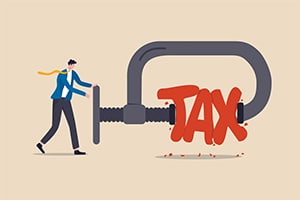
Tax planning season is here! Let's schedule a time to review tax reduction strategies and generate a mock tax return.

Tired of maintaining your own books? Seems like a chore to offload?
Did you want to chat about this? Do you have questions about Dentist Tax Deductions? Let’s chat!
The tax advisors, business consultants and rental property experts at WCG CPAs & Advisors are not salespeople; we are not putting lipstick on a pig expecting you to love it. Our job remains being professionally detached, giving you information and letting you decide within our ethical guidelines and your risk profiles.
We see far too many crazy schemes and half-baked ideas from attorneys and wealth managers. In some cases, they are good ideas. In most cases, all the entities, layering and mixed ownership is only the illusion of precision. As Chris Rock says, just because you can drive your car with your feet doesn’t make it a good idea. In other words, let’s not automatically convert “you can” into “you must.”
Let’s chat so you can be smart about it.
We typically schedule a 20-minute complimentary quick chat with one of our Partners or our amazing Senior Tax Professionals to determine if we are a good fit for each other, and how an engagement with our team looks. Tax returns only? Business advisory? Tax strategy and planning? Rental property support?

Everything you need to help you launch your new business entity from business entity selection to multiple-entity business structures.

Designed for rental property owners where WCG CPAs & Advisors supports you as your real estate CPA.

Everything you need from tax return preparation for your small business to your rental to your corporation is here.


